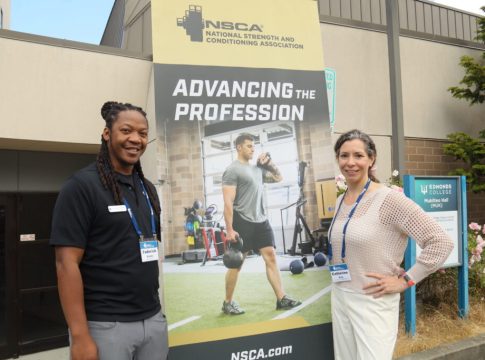Elevating Fitness: Insights from the 2025 NSCA Northwest Regional Conference
This past weekend, fitness professionals gathered at Edmonds College for the highly-anticipated 2025 National Strength and Conditioning Association (NSCA) Northwest Regional Conference. Spearheaded by NSCA Washington State Director Federick Brooks and Regional Director Catherine King, the event created a platform for knowledge sharing, focused on critical topics like facility design and specialized training programs for diverse populations.
Designing Effective Training Spaces
For those considering opening a fitness facility—whether for collegiate football training or a senior fitness program—understanding the layout is crucial. Federick Brooks emphasized the importance of maximizing space to enhance client flow and training efficacy. Here’s what to consider:
- Accessibility: Ensure your facility meets ADA compliance to accommodate all clients.
- Clientele Awareness: Tailor your space based on who you’re training. Different populations, such as athletes or seniors, have unique needs that should influence your facility design.
- Equipment Placement: Arrange equipment in a way that maximizes movement and minimizes hazards.
Brooks noted that many trainers focus primarily on exercise programs, often overlooking the intricacies of facility design. He encourages professionals to blend these concepts for holistic success.
Adapting Programs for Seniors
A highlight of the conference was Tim Vagen’s presentation on training seniors. His insights are invaluable for trainers looking to modify exercise regimens to better serve this population. Key takeaways include:
- Awareness of Condition: Recognize that sleep and other factors can greatly affect seniors’ performance. Adapting training on a day-to-day basis can lead to significant improvements.
- Revisiting Bodyweight Exercises: Vagen pointed out a growing trend toward bodyweight training, which can be particularly beneficial for seniors. Consider incorporating calisthenics into your routines to improve strength and mobility without overwhelming participants.
- Evidence-Based Approaches: Recent studies show that regular exercise can delay the progression of cognitive conditions like dementia and Parkinson’s disease. Encouraging seniors to remain active is vital for their health.
Empowering Trainers and Clients
Fitness professionals like Dawn Madsen, a personal trainer and Irish dance instructor, emphasize the importance of shifting the narrative around aging and fitness. Madsen advocates for empowering clients to understand their bodies, rather than adhering to society’s limitations, particularly for older adults.
Key Strategies for Trainers:
- Encouragement Over Restrictions: Inspire clients to appreciate their capabilities and potential, especially as they age.
- Education: Provide resources and information that help older adults recognize what they can do, fostering a positive mindset towards fitness.
Final Thoughts: A Community of Learning
The NSCA Northwest Regional Conference served as a crucial reminder of the collaborative spirit within the fitness community. By bringing together trainers, coaches, and specialists, the event underscored the importance of lifelong learning and adaptation in fitness.
Takeaway Points:
- Stay Informed: Keep up with current research and trends to better serve your clientele.
- Focus on Individual Needs: Whether training athletes or seniors, always prioritize the specific needs of your clients.
- Community Engagement: Connect with other professionals to exchange ideas and strategies for improving fitness outcomes.
As you embark on your fitness journey—whether as a trainer or an attendee—never underestimate the power of knowledge sharing and community. Together, we can reshape perceptions about fitness, foster resilience, and elevate the well-being of all demographics.

Covers wellness, nutrition, mental health, and daily life tips.
Bio: Talia brings a background in health journalism and holistic living to help readers live better, one tip at a time.

